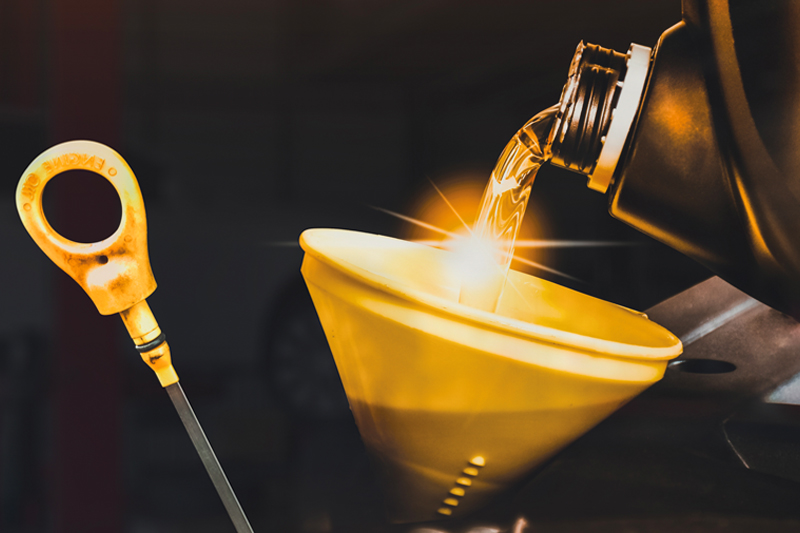
David Wright, Company Secretary of the Verification of Lubricant Specifications (VLS) brings PMM readers up to speed on the latest lubricant investigations.
In 2013, reputable lubricant blenders and manufacturers came together to launch VLS, an independent organisation providing a credible and trusted means to verify lubricant specifications, bringing transparency to the lubricant marketplace.
2023 was VLS’s 10th anniversary year, during which the organisation received an influx of cases, the highest since 2015. Several of those cases have now been concluded, and products have been brought into compliance or removed from sale.
VLS 010176 – 0W-30 C2 fully synthetic engine oil
The complaint concerned the product’s performance claims against Fiat 9.55535-GS1 and Fiat 9.55535-DS1 in relation to its volatility characteristics. The complainant alleged that product testing showed that it did not meet a key performance requirement and, therefore, was misleading to the end consumer.
VLS procured and tested an independent sample for Noack volatility (ASTM D5800) and upheld the complaint, as the product did not meet the limit detailed in the Fiat specifications. During its investigation, VLS also found several other issues regarding claims against Chrysler MS-90047, ACEA C2, PSA B71 2312 and BMW LL-12-FE specifications. In response, the named party conducted their own product testing and an internal review. They removed Fiat 9.55535-GS1 and Fiat 9.55535-DS1 from the “performance profile” of the product. They also agreed to remove claims against Chrysler OEM specifications.
VLS was content that the steps taken by the named party had brought the product into compliance and closed the investigation, subject to a six-month review.
During the six-month review, VLS found that the information presented on the named party’s online shop has not been updated since the end of the investigation, and references remained to the Fiat and Chrysler specifications. VLS asked for these to be amended. As the claims made against Chrysler and FIAT had been removed from the main vendor website and the product’s technical data sheet and packaging, VLS was content to close the investigation.
VLS 010185 – 75W-90 fully synthetic manual transmission fluid
The complaint concerned the product’s low temperature properties and its compliance with SAE J306 viscosity standard. The complainant alleged that as the product set solid during low temperature testing, it was not compliant with SAE 75W specification at -40 degrees centigrade and would not provide adequate circulation in gear systems. They also claimed the product did not comply with the SAE 90 limits.
VLS independently procured a product sample within the UK and tested it for low temperature viscosity characteristics against ASTM D2983. The results indicated that the product was not compliant as it did not meet the requirements of an SAE 75W grade as defined in the SAE J306 standard. However, VLS found that the product complied with the higher temperature SAE 90 limits.
The named party informed VLS that they believed the issue was due to batch contamination. Since the sample was produced, they had changed their filling procedures and moved to automated blending which they said had resolved the problem. The named party had checked all batches subsequently manufactured and stated that they were all compliant according to their testing.
VLS undertook a six-month review, during which a new sample was tested and found to be in continued compliance. Therefore, the case was closed.
VLS 010186 – 75W-90 semi-synthetic gear oil
The complaint concerned the product’s low temperature properties and its compliance with SAE J306 for a 75W grade of gear oil. The complainant alleged that the product was not SAE 75W compliant and would not provide adequate circulation in gear systems as it set solid at low temperatures.
VLS independently procured a sample of the product within the UK and tested it for low temperature properties against ASTM D2983. The results showed that the product turned solid at low temperature and was not compliant with SAE J306 for a 75W product of this type.
The named party immediately quarantined the product and arranged for an uplift by their supplier for further investigation and testing.
VLS believed that the actions taken by the named party had brought the product into compliance, and the investigation was closed subject to a six-month review. During the six-month review, the product was found not to be on open sale in the UK, and so the case was closed.
Several other cases remain open and under investigation, including case 010203, a complaint concerning a PCEO claim against VW 504 00/507 00, ACEA C3, BMW LL-04 and MB 229.51 performance specifications and case 010202, concerning an ISO 32 hydraulic oil.
Other cases are pending a six-month review to confirm their continued compliance. Three cases have been escalated to trading standards as the named parties have failed to take the necessary action to bring products into compliance.
What you can do
At VLS, we work hard to protect workshops by ensuring we have the highest standards for lubricant manufacture, blending and marketing and a level playing field for all participants. We have set a course for stronger industry self-regulation by working positively towards more open and transparent competition that benefits manufacturers, mechanics and motorists alike.
If you are unsure which lubricant to use for a particular vehicle, use vehicle lookup databases online, check handbooks, and ask OEMs or VLS for further clarification. Using the wrong oil risks accelerated wear to gears and bearings, malfunction of emission control devices, higher customer maintenance costs and potential reputation damage.









